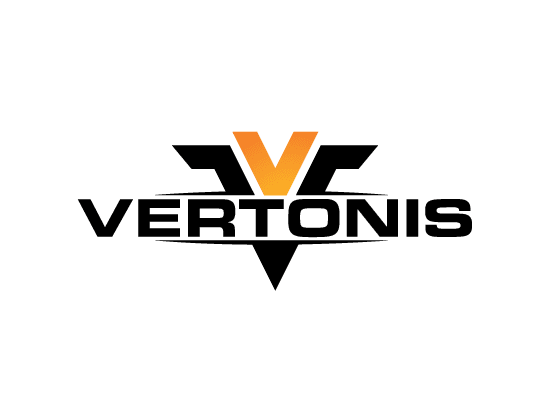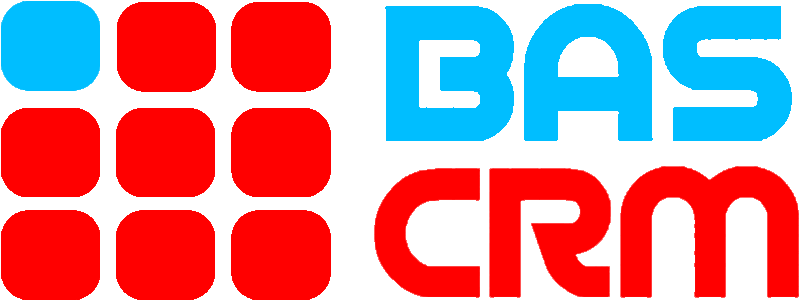Description

vtenext

Vertonis
Comprehensive Overview: vtenext vs Vertonis
Vtenext and Vertonis are both products that cater to business process management and customer relationship management (CRM) needs, but they target these functions through different approaches. Here's a comprehensive overview of each:
a) Primary Functions and Target Markets
Vtenext
- Primary Functions: Vtenext is an open-source CRM platform that integrates business process management (BPM) capabilities. It is designed to manage customer relationships while also providing tools to automate and optimize business processes. The platform is modular, allowing for customization and scalability to meet diverse business needs.
- Target Markets: Vtenext targets small to medium-sized enterprises (SMEs) as well as larger organizations that need flexible CRM solutions integrated with BPM. Industries such as retail, manufacturing, and services often utilize Vtenext for its adaptability and open-source nature.
Vertonis
- Primary Functions: Vertonis is a product that focuses more on business process automation and optimization, offering software solutions primarily geared towards enhanced operational efficiency and scalability. The exact offerings might include custom automation solutions, specialized workflow management tools, or industry-specific process frameworks.
- Target Markets: Vertonis targets larger enterprises or specialized industries that require tailored solutions to address complex challenges in operational management and strategic process improvements. This includes sectors like finance, telecommunications, and supply chain management.
b) Market Share and User Base
-
Vtenext: As an open-source solution, Vtenext's market presence is notable among companies looking for budget-friendly yet highly customizable CRM solutions. While specific market share data might be elusive due to its open-source distribution, its flexibility and community-centric model contribute to a steady user base, particularly in Europe.
-
Vertonis: Vertonis might have a smaller, more niche market share compared to mainstream BPM/CRM solutions given its focus on custom and industry-specific solutions. It likely has a more targeted user base involved in sectors with demanding process management requirements.
c) Key Differentiating Factors
-
Open-Source vs. Tailored Solutions: Vtenext distinguishes itself with its open-source model, allowing companies to adapt the CRM and BPM features to their specific needs autonomously. On the other hand, Vertonis may offer more specialized and custom-tailored solutions, fitting better for industries requiring complex or bespoke process management.
-
Flexibility and Community: Vtenext’s strengths lie in its open-source nature, providing flexibility and benefiting from community-driven enhancements and support. Vertonis might focus on delivering pre-built frameworks and professional services that deliver highly specialized capabilities, which can be crucial for complex environments.
-
Integration and Focus: Vtenext seamlessly integrates CRM with BPM, serving businesses looking to merge customer relationship management tightly with their process workflows. Vertonis might offer deeper integration specific to business domains where process optimization is more critical than traditional CRM functionalities.
In summary, Vtenext and Vertonis serve different aspects of business management needs. Vtenext thrives in environments where adaptable CRM integrated with BPM is required, especially in cost-sensitive or rapidly evolving business contexts. Vertonis, conversely, is poised to serve enterprises that need specialized process management, often with a need for bespoke solution tailoring.
Contact Info

Year founded :
2011
Not Available
Not Available
Italy
http://www.linkedin.com/company/vte-crm

Year founded :
2010
Not Available
Not Available
India
http://www.linkedin.com/company/vertonis.in
Feature Similarity Breakdown: vtenext, Vertonis
vtenext and Vertonis are both platforms that offer solutions for customer relationship management (CRM) and business process management (BPM). Here is a breakdown of their feature similarities, user interface differences, and unique features:
a) Core Features in Common:
-
CRM Functionality:
- Contact Management: Both vtenext and Vertonis allow users to manage customer information, interactions, and history in a centralized database.
- Lead and Opportunity Management: These platforms provide tools to track sales leads and opportunities through various stages of the sales pipeline.
- Sales Automation: Streamlined processes for sales tasks such as follow-ups, reminders, and reporting.
-
BPM Capabilities:
- Workflow Automation: Both solutions offer the ability to automate workflows, reducing manual intervention and increasing efficiency.
- Process Design and Modeling: Tools to create, edit, and manage business processes visually.
-
Integration Capabilities:
- Connectivity with other business systems (e.g., ERP, marketing platforms, communication tools) via APIs or built-in connectors.
-
Reporting and Analytics:
- Dashboards and reports provide insights into business performance, helping to make data-driven decisions.
-
Collaboration Tools:
- Features to enhance teamwork, such as shared calendars, tasks, and communication tools.
b) User Interface Comparison:
-
vtenext:
- vtenext typically emphasizes an intuitive and user-friendly interface with customizable dashboards that can be tailored to specific roles and tasks.
- The design focuses on ease of use, with drag-and-drop functionalities and a modern aesthetic making it accessible to non-technical users.
-
Vertonis:
- Vertonis also offers a clean and structured interface, but it may appear more technical, potentially aimed at users who are familiar with complex systems.
- Its design might prioritize function over form, offering robust features but possibly requiring a steeper learning curve for new users.
c) Unique Features:
-
vtenext:
- Open Source Flexibility: One of vtenext’s standout features is its open-source nature, allowing for extensive customization and flexibility. Organizations can modify and extend the platform to fit their unique needs.
- AI-Driven Automation: Incorporation of AI-based tools to enhance CRM and BPM processes, such as predictive analytics and smart recommendations.
-
Vertonis:
- Industry-Specific Solutions: Vertonis often provides specialized modules tailored for specific industries, offering more out-of-the-box solutions for niche sectors.
- Advanced Data Management: It might offer enhanced data management features, focusing on complex data relationships and configurations.
Each platform offers robust solutions for CRM and BPM, but the choice between them may depend on an organization's specific needs, such as the requirement for open-source flexibility with vtenext or industry-specific customizations with Vertonis.
Features

Integration and Extensibility
Analytics and Reporting
Business Process Management (BPM)
Customer Relationship Management (CRM)
Marketing Automation
Customer Support
Sales Management
Workflow Automation
Integrated CRM & BPM
Customizable Workflow Automation
Omnichannel Communication
Data-Driven Insights
User-Friendly Interface

Efficient Task Management
Security and Compliance
Collaborative Tools
User-Friendly Interface
Data Analytics
Best Fit Use Cases: vtenext, Vertonis
vtenext and Vertonis are two distinct platforms catering to different business needs and scenarios. Here's a breakdown of their best fit use cases and how they serve various industry verticals and company sizes:
a) vtenext:
vtenext Overview: vtenext is a Customer Relationship Management (CRM) system that integrates Business Process Management (BPM) capabilities. It is designed to streamline CRM processes while offering automation features to enhance operational efficiency.
-
Types of Businesses or Projects:
- Medium to Large Enterprises: Companies looking for a comprehensive CRM solution with robust BPM capabilities would benefit from vtenext. It is well-suited for businesses that need to automate complex workflows across various departments.
- Customer-Centric Businesses: Industries such as retail, financial services, and telecom, where managing customer interactions efficiently is crucial, would find vtenext's CRM features particularly valuable.
- Process-Driven Projects: Projects that require extensive customization and tailored workflows, such as supply chain management or after-sales service processes, align well with vtenext.
-
Scenarios:
- When a business needs to integrate CRM processes with existing business workflows.
- When automating repetitive tasks to improve customer engagement and satisfaction is a priority.
- When a company aims to enhance collaboration across departments through a unified platform.
b) Vertonis:
Vertonis Overview: Vertonis specializes in providing advanced data integration and analytics solutions. It is typically used to manage and analyze vast amounts of data for strategic decision-making.
-
Types of Businesses or Projects:
- Data-Intensive Enterprises: Large corporations in sectors like finance, healthcare, and logistics that deal with large volumes of data and require advanced analytics to derive insights.
- Tech-Savvy Businesses: Companies with strong IT infrastructure that need to incorporate complex data analytics into their decision-making processes.
- Research and Development Projects: Projects requiring data analysis and modeling, such as market research or product development studies.
-
Scenarios:
- When a business needs to consolidate data from multiple sources to generate comprehensive reports or dashboards.
- When a company seeks to implement predictive analytics to forecast trends and optimize business strategies.
- When there is a need to ensure data integrity and compliance across numerous data channels and platforms.
d) Catering to Different Industry Verticals or Company Sizes:
-
vtenext:
- Industry Verticals: vtenext caters to industries like retail, financial services, manufacturing, and telecommunications by offering tailored solutions that match their unique customer interaction and process management needs.
- Company Sizes: It is scalable, making it suitable for medium-sized enterprises looking to grow and large enterprises that already have complex CRM needs.
-
Vertonis:
- Industry Verticals: Vertonis is versatile in industry applicability, often used in sectors that prioritize data-driven decision-making, such as finance, healthcare, logistics, and retail.
- Company Sizes: Primarily targeted at large enterprises and multinational corporations due to the complex nature of data integration and the need for substantial IT resources.
These products offer unique capabilities tailored to different operational needs and industries, enabling businesses to choose solutions that align closely with their strategic objectives.
Pricing

Pricing Not Available

Pricing Not Available
Metrics History
Metrics History
Comparing undefined across companies
Conclusion & Final Verdict: vtenext vs Vertonis
To provide a well-rounded conclusion and final verdict on vtenext and Vertonis, let's break it down into the specific components you've asked about. Please note that my assessment is based on the features and information that were available up to October 2023. Newer developments may not be reflected here.
a) Overall Best Value
Best Overall Value: vtenext
vtenext is often praised for its comprehensive CRM capabilities integrated with BPM (Business Process Management), making it highly suitable for businesses looking for a robust solution that can handle both customer interactions and process management efficiently. This integration allows for streamlined processes, enhanced automation, and greater flexibility in managing workflows.
b) Pros and Cons
vtenext:
-
Pros:
- Integration with BPM: vtenext stands out for its native integration of CRM with BPM, which allows for more efficient process automation and management.
- Customization: Offers significant customization options, letting businesses tailor the platform to their specific workflows and requirements.
- Open Source: Being open-source provides more control over the software and potentially lower overall costs compared to proprietary solutions.
- Community Support: A strong community and open-source nature facilitate access to a wide range of plugins and third-party integrations.
-
Cons:
- Complexity: The extensive features and customization options may introduce a steep learning curve for new users.
- Self-Hosting Requirement: As an open-source solution, businesses might need to invest in IT resources for implementation and maintenance.
Vertonis:
-
Pros:
- User-Friendly Interface: Often highlights its ease of use with an intuitive interface, making it accessible for users with varying technical skills.
- Advanced Analytics: Offers strong analytical tools that provide insights into customer data and business performance.
- Cloud-Based: Provides a cloud-based solution, which can reduce the burden of on-premises infrastructure management.
-
Cons:
- Higher Costs: Being a proprietary, cloud-based solution, Vertonis might entail higher subscription fees compared to open-source alternatives.
- Limited Customization: While it offers robust features, it may not be as customizable as open-source alternatives like vtenext.
c) Specific Recommendations
-
For Enterprises Focused on Process Management: If automation and process management are priorities, vtenext’s integration of CRM with BPM makes it a compelling choice. It is particularly suitable for businesses with the technical capacity to handle customization and potential self-hosting.
-
For Companies Seeking Ease of Use and Cloud Solutions: Vertonis might be the better option for businesses that prioritize a straightforward, user-friendly platform with advanced analytics features, and those that prefer a cloud-based service to minimize IT overhead.
-
Budget Considerations: For those with limited budgets, especially small to medium-sized enterprises, vtenext's open-source nature can provide a cost-effective solution, albeit with potential trade-offs in usability and initial setup effort.
In conclusion, the decision ultimately depends on the specific needs and capacities of your business. Consider your organization’s priorities in terms of customization, ease of use, budget, and long-term scalability before making a final decision.
Add to compare
Add similar companies




